What Is The Difference Between Keyboard And Piano?
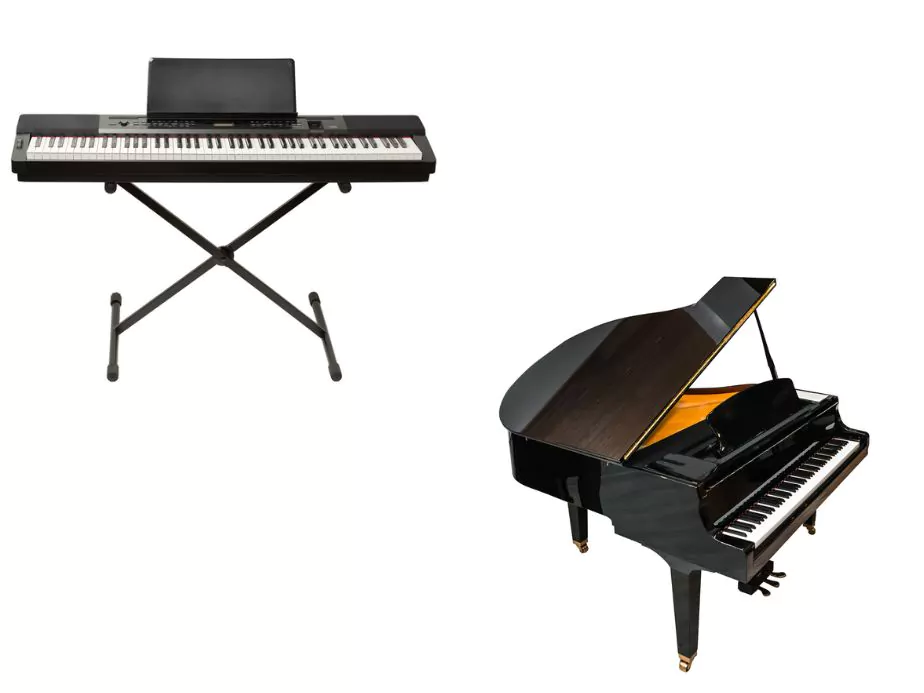
What is the difference between keyboard and piano? If you’ve ever found yourself captivated by the melodic allure of these two instruments, you’re in for a treat. Join us as we embark on a harmonious exploration, dissecting the nuances and contrasting features that set keyboards and pianos apart. Whether you’re a budding musician, a curious enthusiast, or simply intrigued by the world of music, this comprehensive guide will unveil the distinct characteristics, functionalities, and historical backgrounds of these two mesmerizing instruments. Get ready to unlock the secrets of the keyboard and piano, as we delve into their unique realms and discover the magic that lies beneath their keys.
1 Tracing the Roots – Historical Background
Before we delve into the nuances that set these two instruments apart, let’s embark on a brief journey back in time to trace their historical roots.
Piano – The piano, or more formally, the pianoforte, was invented in the early 18th century by Bartolomeo Cristofori. It was the result of an attempt to blend the expressive control of the clavichord with the loudness of the harpsichord. The piano is an acoustic instrument, and its uniqueness lies in its ability to vary the volume of sound produced based on the force with which the keys are struck.
Keyboard – Fast forward a couple of centuries to the 20th century, and we see the advent of the electronic keyboard. Originally designed to mimic the piano and other traditional instruments, it soon carved out its niche, finding a significant place in a diverse range of music genres, from classical to rock.
2 Unravelling the Key Differences
Now that we’ve taken a glimpse into their origins, let’s move on to demystify the key differences between these two popular musical instruments.
Sound Production
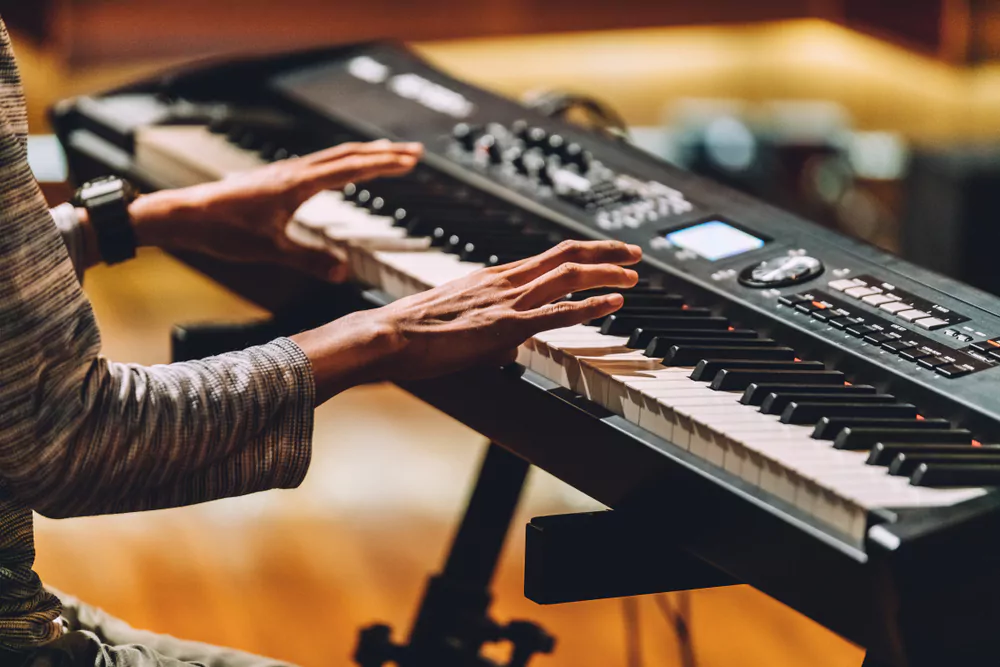
The most fundamental difference between a piano and a keyboard lies in how they produce sound.
A piano is an acoustic instrument that creates sound through a complex mechanism. When you press a key, it activates a hammer inside the piano that strikes a set of strings. The vibrations of these strings resonate through the soundboard, producing the rich, sonorous tones associated with a piano.
On the other hand, a keyboard is an electronic instrument that generates sound digitally. When you press a key, it sends a signal to the synthesiser or sound bank within the keyboard to produce a specific note. The quality of the sound depends on the quality and sophistication of the digital sound samples used.
Touch Sensitivity and Expressiveness
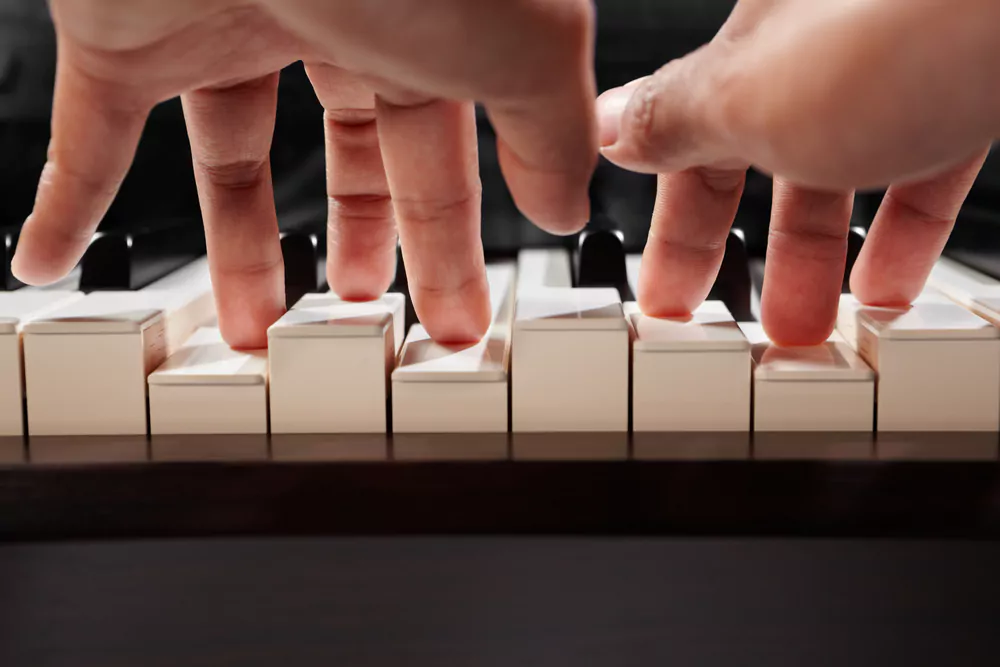
One of the defining features of a piano is its touch sensitivity. The volume and timbre of the note can be controlled by the pianist’s touch – the harder you hit a key, the louder the sound. This offers an enormous range of expressive possibilities.
While basic keyboards lack touch sensitivity, more advanced models – often referred to as digital pianos – do have weighted keys to mimic this feature. Yet, even with the highest quality digital pianos, the touch and feel of an acoustic piano is challenging to replicate fully.
Range of Sounds and Versatility

In terms of versatility, keyboards usually have the upper hand. Most keyboards come equipped with a wide range of sounds, from traditional piano to strings, brass, percussion, synthesisers, and many more. They often include rhythm tracks and accompaniment features, which are valuable for composing or performing a wide range of music styles.
In contrast, a piano produces one unique, magnificent sound – that of a piano. However, some might argue that the tonal richness and emotional depth of a piano surpass any synthesised sound.
Portability and Space
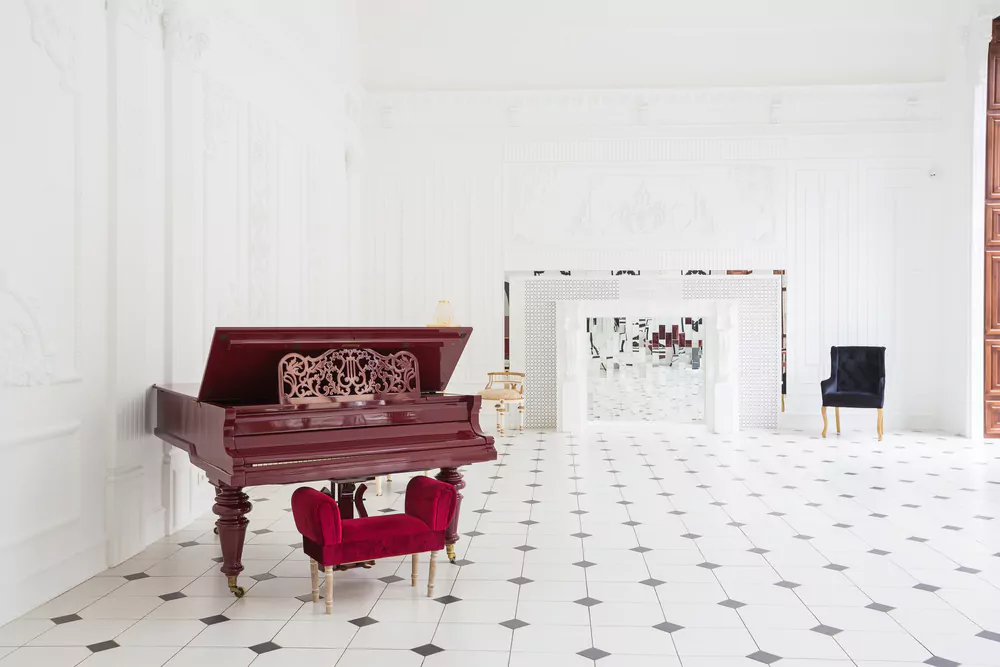
Keyboards, especially smaller models, are more portable than pianos. They are lighter, more compact, and can be taken almost anywhere. On the other hand, pianos, particularly grand pianos, are heavy, bulky, and require a significant amount of space. They are not designed to be moved frequently or easily.
Maintenance and Durability
Pianos require regular tuning, usually at least once or twice a year, to maintain their optimal sound. Environmental factors like humidity and temperature can affect a piano’s tuning and overall health. Additionally, the mechanical parts can wear out over time and may require repair or replacement.
Keyboards, in contrast, are relatively low maintenance. They never need tuning, and there are fewer mechanical parts that can wear out. However, they can be sensitive to dust, moisture, and electrical issues.
Cost
Cost can vary widely for both pianos and keyboards, depending on the brand, model, and features. However, in general, a good quality new acoustic piano will cost more than a keyboard. It’s worth noting that high-end keyboards and digital pianos can also come with hefty price tags.
Learning and Skill Transfer
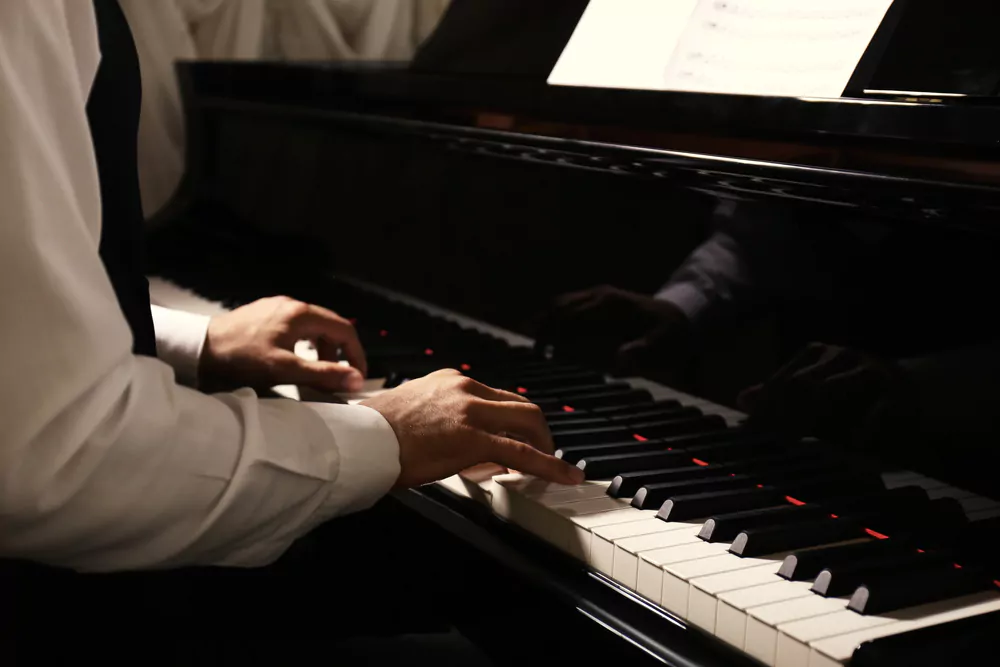
Both the piano and the keyboard are excellent instruments for beginners. The linear layout of the keys makes the basic theory easy to understand. However, if your goal is to eventually play an acoustic piano, starting with piano lessons might be more beneficial. The weighted keys of a piano help develop finger strength and dexterity that a non-weighted keyboard won’t.
On the other hand, learning on a keyboard might be more suitable for those interested in a broader range of music styles or who wish to experiment with different sounds and rhythms.
3 Pianos and Keyboards - Complementary, not Contradictory
Although there are significant differences between pianos and keyboards, it’s important to recognize that they are not mutually exclusive – they are complementary. Many professional musicians and music enthusiasts use both. The choice between a piano and a keyboard depends largely on your musical goals, budget, available space, and personal preference.
To summarise:
Choose a piano if you value the richness, depth, and expressiveness of sound, don’t mind the maintenance, have enough space, and can afford it.
Opt for a keyboard if you need something portable, versatile, and low maintenance with a wide range of sounds, or if you are on a tight budget.
In the end, whether you choose a piano or a keyboard, the beauty of music lies in the joy of playing and the emotions it evokes. The instrument is merely a tool to help you express your musical creativity and passion.
Remember, a well-played keyboard can sound more pleasing than a poorly played piano. So, no matter what you choose, focus on developing your skills and enjoy your musical journey.
4 Wrapping Up
While the piano and the keyboard may share a similar look, the differences between them are significant, each offering its unique qualities. Whether you’re a seasoned musician, an aspiring artist, or simply someone who appreciates good music, understanding these differences can help you appreciate the beauty and versatility of these instruments in new ways.
Music isn’t a one-size-fits-all discipline. It’s about finding the instrument that sings to your soul and aligns with your personal style. Whether that’s the resonant melody of an acoustic piano or the diverse symphony of a keyboard, the choice is entirely personal, entirely beautiful, and entirely yours.
Community Q&A
About This Article
This article has been viewed 438 times.



